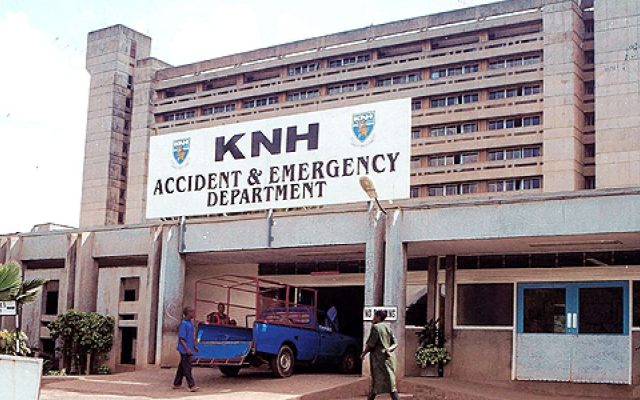A Kibera Magistrate’s Court has ordered the four‑day detention of Kennedy Kalombotole, a person of interest in the suspected murder of a patient at Kenyatta National Hospital’s Ward C. He will remain in custody at Kilimani Police Station until Thursday, July 24, 2025, while investigators pursue critical leads.
Kalombotole was presented to the court on Monday, July 21, 2025, following the death of Edward Maingi Ndegwa, discovered lifeless in his hospital bed on July 17. Investigators say the circumstances remain suspicious and unresolved.
The Directorate of Criminal Investigations had sought a 21‑day custodial period but the court trimmed the request. Detectives said they require time for forensic analysis, DNA sampling and comparison, fingerprint collection, mental health assessment, formal witness statements, and a full autopsy to establish the cause and manner of death.
Investigators also argued that temporary detention would safeguard the respondent amid intense public outrage and grief expressed by the Ndegwa family and the wider community. They warned that an early release could expose him to harm or compromise evidence.
Defence lawyers Joshua Ombengi and Zephaniah Chapa opposed extended detention, telling the court Kalombotole is medically unwell and had only recently been discharged from treatment when arrested. They urged the production of current medical reports from Kenyatta National Hospital and Nairobi Women’s Hospital to guide decisions on custody and interrogation.
Presiding Magistrate Daisy Mutai granted the shorter detention window and directed investigators to furnish the two medical reports before the next appearance. The matter is set for mention on July 24, 2025, when the court will review the suspect’s health, investigative progress, and the possibility of preferring murder charges or revisiting bond.
According to submissions, detectives still need biological samples from Kalombotole for laboratory comparison with materials recovered from the ward and the deceased. They also plan structured interviews with staff, patients, and visitors present in the days leading to Ndegwa’s death.
The incident has rattled confidence in patient safety at one of the country’s busiest referral facilities and is expected to sharpen scrutiny of hospital security protocols across public institutions.
Next steps include completion of the post‑mortem report, chain‑of‑custody documentation for recovered evidence, and a mental fitness evaluation to determine whether Kalombotole can stand trial should charges be filed. Findings in this probe may inform broader policy discussions on surveillance coverage, visitor screening, and staffing levels in high‑dependency wards nationwide. Health advocates are closely tracking the proceedings nationwide.

